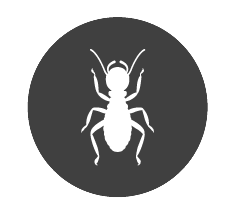Termite Control & Services
Hungry termites can eat through a house at approximately twelve pounds a year, depending on the type of termite and the colony’s size. While that might not sound like much, it could be enough to destroy your home’s structural support. Get help now!
Termite Extermination Services
Termites are voracious eaters, and they aren’t picky over the type of wood they eat either. They eat non-stop, finding their way into your home or business through tiny cracks. If you have termites, you need Brantley Termite & Pest Control, because we’ll keep coming back until the problem is resolved.
The Homeowner’s Guide to Termite Damage & Treatment
About 84% of homeowners say they’ve dealt with some kind of a pest problem in the past year.
The kind of infestation that property owners usually fear the most?
Termites.
These creatures can seriously damage your home’s value and structural integrity, and cost you thousands of dollars in repairs. You want to do everything possible to protect your investment — and that starts with educating yourself about what termites are capable of.
The experts at Brantley Termite & Pest Control is here to help.
We’ll cover the main types of termites, the signs of a potential infestation, termite prevention steps you can take on your own, and when and why to call a professional. Read on to learn how to defend yourself against termites, and how to ensure that you’re not accidentally creating the perfect conditions and environment for a severe infestation.
Different Types of Termites
When you’re dealing with a termite infestation, you’ll face off against the three main types of termites: subterranean, drywood, and dampwood.
Subterranean termites, as the name suggests, usually live in the dirt and soil under your home. They’re the most common kind of termites, and in addition to wood, they also eat paper. They get into your house one of two ways: by building their own mud tubes that create a path to the wood; or by easily traveling from the soil to any wooden home exterior or object that’s placed on the ground. If you see wood damage that looks a bit like a honeycomb, you’ve probably got subterranean termites on your hands.
Drywood termites, unlike subterranean termites, don’t always live in the soil. They live instead in wood that’s stored above the ground, like firewood or even furniture. They get the nutrients they need from moisture from the wood, as well as humidity. This means that they especially love hot, humid climates and may appear after a rainstorm. If you spot fecal matter (often called frass) that looks like powder or small, hexagonal shapes, you likely have drywood termites.
Finally, dampwood termites thrive in environments with plenty of water-damaged wood or wood that’s sitting on the soil outright. This means they love things like fallen branches, tree stumps, and even wooden roof shingles and support beams. It’s important to understand that drywood termites don’t actually make mud tubes, but instead block up the entryways with their fecal matter. Common signs of dampwood termites are a presence of fungus in the wood, and even leaks in your home.
Other Signs of Termite Damage
Now that we’ve covered the main kinds of termites and the signs of a type-specific infestation, let’s quickly discuss more general signs of termite damage.
Oddly enough, you may be able to recognize an infestation because you keep hearing clicking noises inside of your walls. This sound is either the noise of termites eating your wood, or banging their heads against the walls to warn other termites of potential danger. You may also struggle to open up (or properly close) doors and windows in the home. While in some cases, this is due to changes in the weather and damages from rain or leaks, the problem can also be caused by termites. When they eat wood, the termites release lots of moisture — which, like humidity and rain, can also warp your doors and windows.
Many people mistake some species of termites for white-colored ants, and attempt to control the problem on their own using sprays they buy at a local hardware store. This is a common misconception, as the two pests do look quite similar to one another. Termites, unlike ants, have totally straight bodies, a thicker waist and midsection, and two sets of wings that are identical in size.
Check out this post to see a few pictures of the differences between the two. Above all, remember this: “white ants” aren’t really. They’re not a new species of ants you’ve never seen before: they’re termites.
Finally, be on the lookout for pairs of wings around your home, especially wings that are all the same size and in clumps. Flying termites (also called swarmer termites) abandon their wings after mating.
How Termites Can Damage Your Home
No one likes the nasty, unclean feeling of having termites in the home. But aside from that, termites can cause real and serious damage to your property.
In fact, termites cause an average of $5 billion of damage to buildings and home every year. That’s more than flooding and fires combined.
The main worry with termites is the threat they pose to the structural integrity of your home — yes, even if you have a home made of brick or stone. This can seriously decrease your home’s value, force you to make costly repairs, and could even be dangerous if left unnoticed and untreated for too long. Of course, if you’re trying to sell your home, many buyers won’t even consider investing in a home that has current or previous termite damage.
Termites can eat through your home’s foundation, chomp on plaster, insulation, and even metal siding. They make short work of sheds, outdoor firewood storage and furniture, and much more. In some cases, your homeowner’s insurance may not cover much of any termite damage. This means there can sometimes be devastating financial consequences to a termite infestation as well.
Effective Termite Prevention Tips
So, what can you do on your own to keep termites at bay?
- Be on the lookout for any leaks and cracks in your home. This means that things like leaking gutters, water pipes, HVAC units, and faucets should be fixed immediately.
- Clean up any pools of water in and around your home as soon as you can.
- Check your roof’s shingles and fascia for water damage, and head to the basement to seal up any cracks or loose mortar.
- Keep any bushes, hedges, or flower beds in your yards about ten inches away from your home’s exterior, and make regular trimming and pruning a part of your strategy.
- If possible, consider switching from mulch, which is a haven for termites and other insects, to pine needles or even gravel.
- In general, the rule of thumb is to create at least an 18-inch gap between dirt, soil, and wooden foundations, siding, or items outside of your home.
- Keep firewood about 15-20 feet away from your home, and don’t store it directly on the ground.
Professional prevention is truly the best cure. We strongly suggest having an annual termite inspection (as well as inspections for other potential pests.) If you have damage, a professional can get to work on extermination right away, mitigating the harm done to your property.
But even if you don’t have any damage, an expert can identify areas that could potentially create a haven for termites later on. They can work to install mesh and concrete barriers in at-risk areas, alert you to leaks and cracks you likely wouldn’t have found on your own, and much more.
How the Termite Removal Process Works
Sometimes, although you’ve done everything in your power to stop it from happening, termites still make their way into your home. While you can certainly manage most of the prevention tips we discussed above on your own, taking a DIY approach to termite extermination just isn’t going to cut it. Let’s talk about what you can expect out of a professional termite removal service, and how long the process might take.
In some cases, a regular pest control service and standard fumigation may be able to get rid of termites in the home. You may, depending on the severity of the issue, also need a Tent Fumigation. The latter can take up to 3 days and 2 nights. This length is necessary for both your safety and to ensure a thorough job is done. First, there are a few things you should do on your own to prepare for a Tent Fumigation.
- Remove any opened/unsealed consumable items, especially food and drinks, should be removed from the property or stored in Fume Bags. Yes, this even goes for food in your fridge and freezer.
- The home’s gas and pilot lights will also be turned off, but power and water will be kept on throughout the process.
- You may need to get rid of anything you have leaning up against the home or room, depending on the exact infestation.
- You, your family, and your pets will leave the property during the Tent Fumigation.
Before you re-enter your home, the professionals will test the air quality to ensure it’s safe for everyone. On the first day, your home will be covered in tarps and a pesticide gas is released. After 16-24 hours, the tarps are taken down and aeration takes place. On the third day, the air quality is tested, and you can re-enter your house.
What to Look for in a Termite Treatment Company
We know that, when you have a termite infestation on your hands, you want to handle the situation as quickly as possible. However, the truth is that when termite damage becomes especially noticeable, termites have likely been living in and feasting on your home for about three to eight years already. This means that taking a few days to conduct proper research on a termite extermination and control company probably won’t make or break your home’s structural integrity.
So, what should you look for to ensure you’re working with the best?
First of all, look for a company that has plenty of experience. While there’s nothing wrong with a new company, especially if you’re dealing with serious damage, you don’t want to be someone’s first try. Ask about their experience level with homes or properties like your own. If you’re scheduling an inspection as opposed to an extermination, make sure you know how thoroughly they plan to inspect your home. Will they go on your roof or under your home if needed?
You should also work with a company that allows you to schedule a free estimate before you decide to hire them. That way, you can get a feel for the level of service you can expect, as well as some insight on the methods they plan to use to solve the problem.
Also look for a company that offers a 100% satisfaction guarantee. The goal of a pest control company is to eliminate all of the problem, not just the visible issues. You don’t want to have to deal with the same thing again in a few months.
Finally, we suggest that you connect with references and read online reviews and testimonials before deciding to work with a specific company. Ask the references if the work was completed on time, if the problem persisted after treatment, and even about any hidden fees or charges.
Ready to Hire Professional Termite Treatment Services?
We hope that this post has helped you to feel much more educated about the signs of a termite infestation, what you can do to prevent it on your own, and what to expect from a professional pest control service. Remember to get ahead of the problem by scheduling an annual inspection, and by taking the time to monitor your home for cracks, leaks, and other potential issues.
Looking for experienced and dedicated pest removal services that will make termites a thing of the past in your home? If so, then we invite you to schedule a free estimate with us today. In addition to termites, we can also help you eliminate rodents, bed bugs, and other pests.
Don’t let termites wreak havoc on your home for one more day. Solve the problem once and for all with our help.
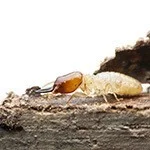
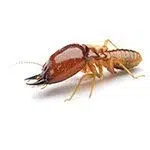
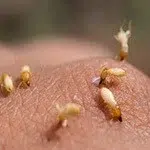
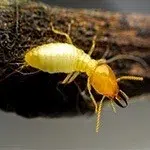
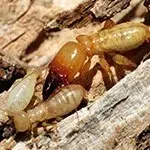
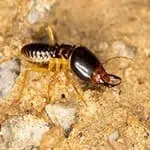
Do You Need, Services?
Residential Termite Services
Termite infestations can be highly destructive. Years of experience have given the technicians at Brantley Termite & Pest Control the expertise to identify, eradicate, and control wood-destroying termite populations in Florida homes.
Commercial Termite Services
Keeping commercial buildings termite-free is essential in protecting your financial investment from the damage these wood-destroying pests can create. Here at Brantley Termite & Pest Control, we eliminate termites quickly.
Real Estate Termite Inspections
Whether you own real estate or you are actively selling a client’s building, you can do not better than to select Brantley Termite & Pest Control to eliminate termite infestations from your property.

